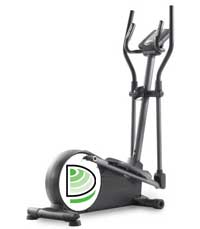I’m sure it was a pitiful sight. Hobbling into the living room on my walker, 3 days after a total knee replacement, I was sniveling and sobbing like a 5 year old. My nurse-friend who stayed with me during my first nights at home and my friend who stayed with me during the day had looks of horror on their faces… “What’s wrong???”
My pain medication had kicked in and I managed to say: “Whaaaaat am I going to do when you’re not heeeeere?” (sniff sniff) I won’t be able to eat! (sniff, snort, gasp.)
You see, I relied on them to prepare my meals and serve them to me. I relied on my walker for every move and there was no way I could prepare food or tea and actually eat it. What was I going to do???
I envisioned myself starving for days until I was rescued.
My self pity lasted about 3 seconds when the 2 of them responded like drill sergeants with a hint of empathy:
“We’ll get a tray for the walker tomorrow.”
“You have a ton of friends who volunteered to help you. Ask them to come for dinner and tell them to bring food.”
So there I was – feeling helpless and pitiful and now I had to grovel for food… for the next 3-4 weeks.
Why did I have to ask for help???
Why couldn’t people just read my mind or magically show up when I needed something? It seemed so unfair – to be dependent on other people AND to have to ask for help. How humiliating.
Well, it’s true – I did have a lot of people who offered to help and I quickly learned there is an art to asking for help. So here are a few of the lessons learned and hopefully you can use a few if you’re ever in need…
1) Make it easy for people to help you. Lots of people offered to bring me food, so I started inviting them for lunch or dinner. They could pick the day that worked best for them. After all, I wasn’t going anywhere. Before I knew it, I had companionship and food to last for weeks!
2) Be specific about what you need. For example, a couple years ago, I changed my diet to very specific foods… so, how could I ask people to bring food – but no casseroles, no sugar, no carbs… They were gracious enough to offer to feed me, how I could I make this request without sounding ungrateful?
Before my surgery, I was told I needed to be on an anti-inflammatory diet to support the healing process – and it just so happened that this diet was exactly what I wanted. So I prepared my “Anti-Inflammatory Diet ” protocol and sent it to friends. It listed all the preferred foods and what to avoid. Viola! Many commented on how helpful it was to have those guidelines.
3) Match the request to the person. I knew that I wasn’t going to ask just anyone to help me put on my TED hose (see How TED hose will make me a better leader). Certain tasks are better for certain people. When I asked a friend if she’d change the sheets on my bed, her response was “OH! Thank God! I was afraid you were going to ask me to change your bandage!”
4) But wait! There’s more! Sometimes you need to ask for help with just one more thing… and how do you ask for more, without feeling demanding or ungrateful? For example, when my friends brought me meals, I routinely told them that it was a huge help to me, if they could load the dishwasher and put extra the food in containers in the refrigerator. You see, it may sound simple, but these small tasks required enormous amounts of energy and left me exhausted. I quickly learned that it was more satisfying to ask for more help when needed than to feel resentful that they didn’t know it was hard for me… or expect them to read my mind!
Now that I am driving and cooking for myself, I kind of miss being “taken care of.” People want to help and be supportive – and they often don’t know what you need.
Before you think these tips are just when you need help due to illness or injury, take note. These concepts are needed in the workplace, now, more than ever. Who hasn’t experienced a sense of total overwhelm and exhaustion due to pressures at work?
Remember what Mick Jagger said:” You can’t always get what you want… but if you try, sometime, you get what you need.”
Next blog topic: Being grateful when you don’t get what you want…
Marty Stanley, CSP, is a national speaker, author and consultant on personal and organizational change. Marty can help you and/or your organization plan for, lead and manage change. She can also help you learn to just deal with it. martystanley@alteringoutcomes.com 816-695-5453.
For more information on being a Type T leader, watch this 1 minute video.
Or order the book on How to Be a Transformational Leader in a Bottom-Line World.









